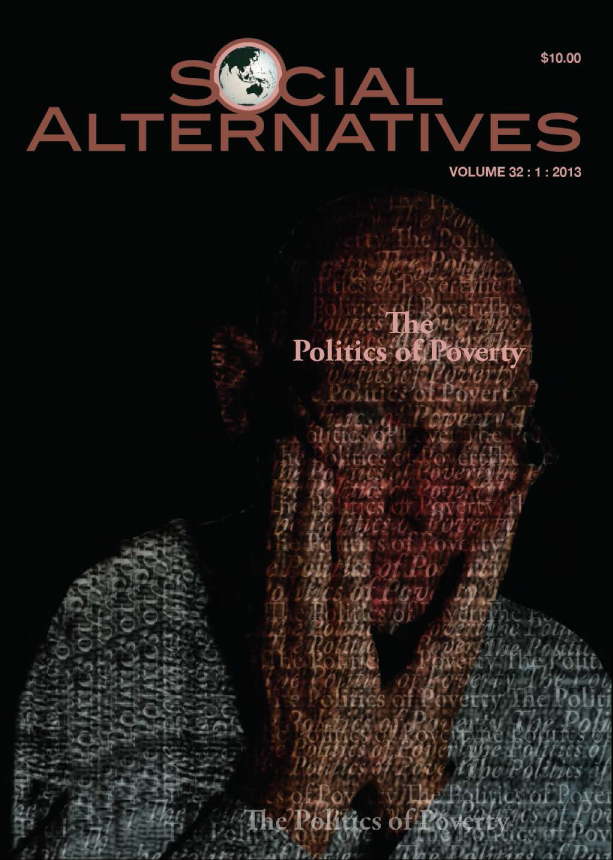In this special issue of Social Alternatives, the politics of poverty is examined through presentation of case studies of five different countries. The first article by Dennis Raphael introduces some definitions and interpretations by which poverty and its causes can be understood within wealthy developed nations. He outlines how the concept of relative poverty is a particularly useful way to think about these issues. Raphael also points out how poverty rates are strongly related to politics, for which he offers various definitions.
Fran Baum and Angella Duvnjak present the Australian case study in which they outline key issues concerning poverty in Australia. Specifically, they discuss the trend towards using broader, multidimensional measures of material deprivation to direct public policy responses as part of a social exclusion approach. Shauna MacKinnon discusses the politics of poverty in Canada. She notes that Canada lacks an official poverty line and argues that the focus on how to measure poverty detracts from recognising Canada’s unacceptably high poverty levels. Australia and Canada are both liberal welfare states which traditionally have higher poverty rates and less developed public policy responses to addressing it. These case studies highlight the significance of these nations being liberal welfare states and how welfare state ideology shapes their interpretations and responses to poverty.
Juha Mikkonen and Elisabeth Fosse describe the situation in two social democratic welfare states, Finland and Norway. Mikkonen notes Finland’s low poverty rates, yet addressing poverty and inequality continue to be high on the public policy agenda. He then identifies the challenges and opportunities for continued poverty reduction in Finland. Similar to Finland, poverty has been high on the public policy agenda in Norway since the late 1990s. Since 2005, poverty has been conceptualised as a structural issue with the aim of public policy being to reduce the social inequalities through universal measures but with an emphasis on improving the material situations of those who are worst off.

